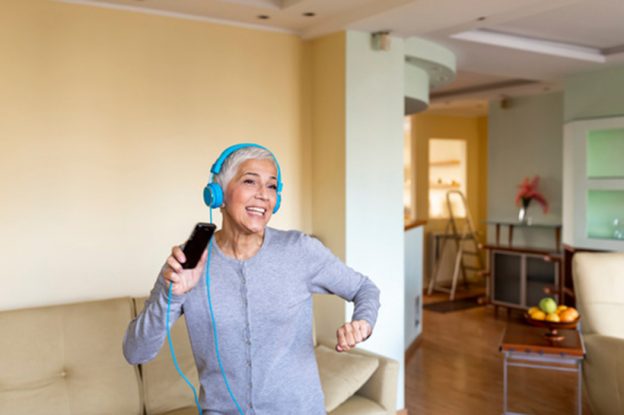
Fewer hospitalizations for home-based cardiac rehabilitation patients
Patients who participated in in-home cardiac rehabilitation had fewer hospitalizations over 12 months than patients who participated in center-based cardiac rehabilitation, according to a Kaiser Permanente study published August 25, 2022, in JAMA Network Open.
“The remarkable thing we found in this study of more than 2,500 diverse patients was that health advantages of home-based cardiac rehabilitation applied to both patients with low and moderate risk, as well as those with higher risk due to poor health, age, or chronic health conditions,” said the study’s lead author Chileshe Nkonde-Price, MD, a cardiologist at the Kaiser Permanente West Los Angeles Medical Center, a clinician investigator with the Kaiser Permanente Southern California Department of Research & Evaluation, and an assistant professor at the Kaiser Permanente Bernard J. Tyson School of Medicine.
Cardiac rehabilitation in a hospital-based setting is a well-studied, effective way to improve health after cardiac issues such as heart attacks, cardiac surgery, and stable angina. Despite this knowledge, many people don’t take advantage of rehabilitation, especially women, members of certain racial and ethnic groups, and individuals with multiple chronic illnesses. Home-based cardiac rehabilitation was developed to increase the diversity of participants by improving accessibility. Kaiser Permanente’s 8-week home-based program in Southern California includes weekly nurse calls, education, and unsupervised exercise monitored with a smart watch.
Prior studies have suggested that participation in home-based and center-based cardiac rehabilitation results in similar clinical outcomes in patients with low-to-moderate risk. However, outcomes from demographically diverse populations and patients who had other chronic illnesses and other medical complexities had not been studied.
This study tracked 2,556 patients who participated in cardiac rehabilitation from April 1, 2018, to April 30, 2019. The patients had a mean age of 67 and were about 30% women and 45% nonwhite, and 47% had a combination of health factors that would put them in a medically high-risk category.
In the study, 48.5% of patients participated in home-based cardiac rehabilitation and 51.5% participated in center-based cardiac rehabilitation.
- Patients who participated in home-based cardiac rehabilitation had 21% lower odds of hospitalization at 12 months compared with patients who participated in center-based rehabilitation, but similar odds of:
- Adherence to beta blockers and statins
- Control of blood pressure
- Low-density lipoprotein LDL-cholesterol
- Patients who participated in home-based cardiac rehabilitation typically lived farther from their nearest available center-based rehabilitation center.
- Patients who participated in home-based cardiac rehabilitation were more likely to complete their program.
Study senior author Tad Funahashi, MD, who is Kaiser Permanente’s chief innovation officer for Southern California, led the development of the in-home cardiac rehabilitation program, collaborating with a technology company to develop the app for a customized smart watch.
“The success of this home-based program demonstrates that healthy behaviors begin where patients live, work, and play. Our technology-enabled care solutions in combination with our integrated delivery system can keep track of the patients, almost as though somebody’s calling them every day, all the time, to see what’s going on,” Dr. Funahashi said. “If a patient isn’t exercising or is failing to meet other expectations of the program, health care providers can follow up in person or over the phone. Importantly, these care solutions help provide equitable, convenient, and quality care to all patients over challenges they may have in with in-person visits.”
Doctors or nurses can review data, including step counts and heart rate to check exertion, through a dashboard on Kaiser Permanente’s electronic health record system, and adjust the patient’s rehabilitation program as needed.
In addition to Dr. Nkonde-Price, other authors include Kristi Reynolds, PhD, of the Department of Research & Evaluation and the Kaiser Permanente Bernard J. Tyson School of Medicine; Michael Najem, BS, of the School of Medicine; Su-Jau Yang, PhD, of the Department of Research & Evaluation; Columbus Batiste, MD, of the Kaiser Permanente Riverside Medical Center, and the Kaiser Permanente Center for Health Innovation in Tustin, California; Timothy Cotter MD, of the Southern California Permanente Medical Group and the Center for Health Innovation; Debora Lahti, MSN, Center for Health Innovation; Nancy Gin, MD, of SCPMG and the Center for Health Innovation; and senior author, Tadashi Funahashi, MD, SCPMG, Center for Health Innovation, Kaiser Permanente Orange County–Irvine Medical Center.





